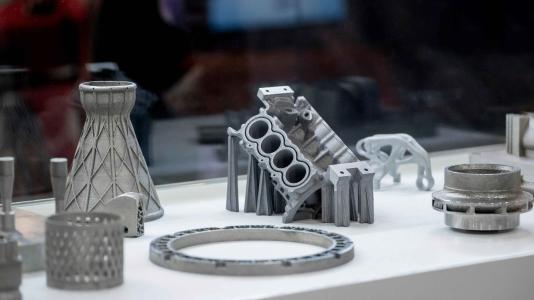X線と機械学習で、プリント部品の生産を進化させる Using X-rays and machine learning to advance the production of printed parts
2023-03-09 アルゴンヌ国立研究所(ANL)

The metal additive manufacturing process can be used to quickly make parts with complex geometries. (Image by Shutterstock.)
研究者らは、金属粉末をレーザーで加熱し、その後形状を作り出すLaser Powder Bed Fusionの方法で作成された金属サンプルを使用して、金属3Dプリント部品内の微小な欠陥をリアルタイムでほぼ完璧な精度で検出し、予測することができた。
研究者たちは、APSが提供する高度なX線ビームを使用して内部の欠陥を観察し、熱カメラの熱シグナルを機械学習モデルに入力することで、3Dプリント金属部品内の微細な欠陥の予測精度を高めることに成功した。
この手法は、商用システムに簡単に実装できる。最終目標は、欠陥を検出するだけでなく、製造プロセス中に欠陥を修正することである。
<関連情報>
- https://www.anl.gov/article/researchers-unveil-new-aidriven-method-for-improving-additive-manufacturing
- https://www.science.org/doi/10.1126/science.add4667
機械学習を用いたレーザー粉末床溶融におけるキーホール孔発生のリアルタイム検出法 Machine learning–aided real-time detection of keyhole pore generation in laser powder bed fusion
Zhongshu Ren,Lin Gao,Samuel J. Clark,Kamel Fezzaa ,Pavel Shevchenko,Ann Choi,Wes Everhart,Anthony D. Rollett ,Lianyi Chen,Tao Sun
Science Published:5 Jan 2023
DOI:https://doi.org/10.1126/science.add4667
Tracking down the pores
Laser fusion techniques build metal parts through a high-energy melting process that too often creates structural defects in the form of pores. Ren et al. used x-rays to track the formation of these pores while also making observations with a thermal imaging system. This setup allowed the authors to develop a high-accuracy method for detecting pore formation from that thermal signature with the help of a machine learning method. Implementing this sort of tracking of pore formation would help avoid building parts with high porosity that are more likely to fail. —BG
Abstract
Porosity defects are currently a major factor that hinders the widespread adoption of laser-based metal additive manufacturing technologies. One common porosity occurs when an unstable vapor depression zone (keyhole) forms because of excess laser energy input. With simultaneous high-speed synchrotron x-ray imaging and thermal imaging, coupled with multiphysics simulations, we discovered two types of keyhole oscillation in laser powder bed fusion of Ti-6Al-4V. Amplifying this understanding with machine learning, we developed an approach for detecting the stochastic keyhole porosity generation events with submillisecond temporal resolution and near-perfect prediction rate. The highly accurate data labeling enabled by operando x-ray imaging allowed us to demonstrate a facile and practical way to adopt our approach in commercial systems.



